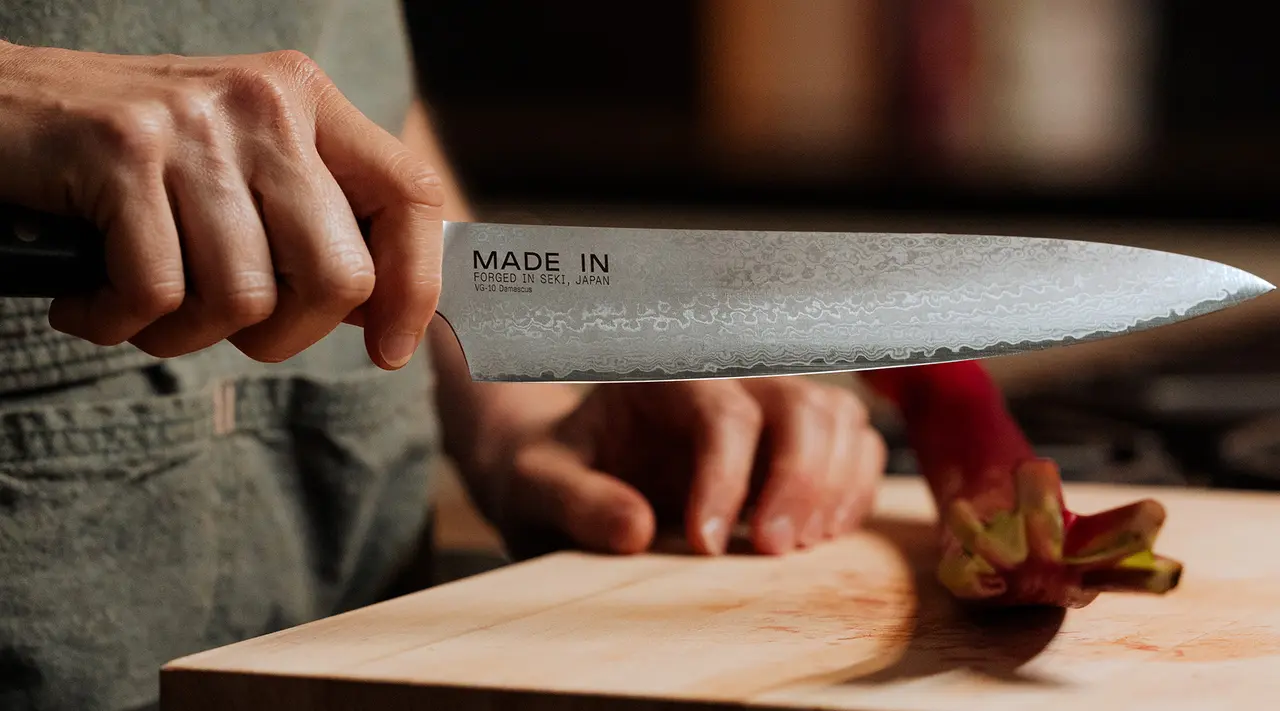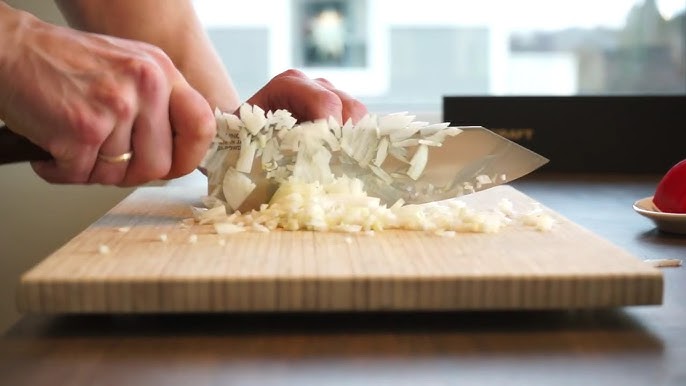When it comes to high-quality kitchen cutlery, the term 'German knives' often stands out, especially among kitchen professionals. But what makes a knife German? This question isn't merely about geographical origin; it's about a rich tradition of craftsmanship, material excellence, and a dedication to precision. In this article, we'll take a deep dive into the characteristics that define German knives and why they're a staple in many kitchens worldwide.

The Hallmarks of German Knives
At the core of understanding what makes a knife German is recognizing the craftsmanship that goes into each piece. German knives are typically known for their durability and robust design. A significant factor that contributes to these qualities is the German steel used in their construction. This type of steel, often a blend of carbon and chromium, provides an optimal balance between hardness and resistance to corrosion.
For a more in-depth look at the steel properties, visit the steel properties blog on our site.
Design and Ergonomics
Another key aspect of German knives is their design. The blade of a German knife is known for its thicker and heavier profile compared to Japanese knives. This design is particularly advantageous for tasks requiring force, such as chopping through dense vegetables or bones. The handle of a German knife is also designed with ergonomics in mind, providing a comfortable grip that reduces fatigue during extended use.
The Craftsmanship Behind German Knives
One cannot discuss what makes a knife German without mentioning the meticulous craftsmanship involved. German knives are often forged, a process that involves heating a single piece of steel and shaping it into a blade. This method results in a stronger and more durable knife. For those interested in the nuances between forged and stamped knives, our detailed explanation can be found in the forged vs stamped knives article.
The Steel Secret
The steel used in German knives is often a blend known as X50CrMoV15, which includes carbon, chromium, molybdenum, and vanadium. Each element plays a crucial role: carbon adds hardness and strength, chromium enhances stain resistance, molybdenum contributes to strength and toughness, and vanadium improves wear resistance. This specific composition is what gives German knives their reputation for longevity and reliability.
For a comprehensive comparison between Japanese and German steel, check out this informative piece on Japanese vs German steel.
Maintaining German Knives
To ensure longevity, proper maintenance of your German knife is essential. Regular honing and sharpening are necessary to keep the edge in optimal condition. If you're unsure about how to sharpen your knife, our step-by-step guide on sharpening a German knife can be extremely helpful.
Cleaning and Care
Cleaning your German knife properly is also crucial. Hand washing with mild soap and water, followed by immediate drying, is recommended to preserve the blade's integrity. Avoiding the dishwasher is key, as it can be harsh on the blade and handle. For detailed cleaning tips, you can refer to cleaning your Wsthof knives.
Why Choose German Knives?
So, why should kitchen professionals opt for German knives? The answer lies in their versatility and robustness. Whether you're a professional chef or a home cook, the reliability and precision of a German knife can significantly enhance your culinary experience. Their ability to handle a wide range of kitchen tasks makes them a valuable addition to any kitchen.
Popular German Knife Brands
Several brands have become synonymous with German knives. Brands like Wsthof, Zwilling J.A. Henckels, and Messermeister are renowned for their quality and craftsmanship. Each brand offers a unique interpretation of the traditional German knife, catering to different preferences and needs. To explore the top brands in more detail, our article on top German knife brands offers a comprehensive overview.
For a peek into the cutlery center of the world, consider visiting Solingen, Germany, where many of these renowned brands are based.
Conclusion
Understanding what makes a knife German goes beyond its mere origin. It's about appreciating the meticulous craftsmanship, superior materials, and thoughtful design that contribute to their status as a kitchen essential. For kitchen professionals, investing in a German knife means choosing a tool that offers durability, precision, and versatilityqualities that are indispensable in the culinary world.

FAQs
What are the main features of a German knife?
The main features include a robust design, thicker blade, ergonomic handle, and high-quality German steel construction.
How often should I sharpen my German knife?
It's recommended to hone your knife regularly and sharpen it as needed, depending on the frequency of use.
Are German knives dishwasher safe?
No, it's best to hand wash German knives to maintain their integrity and prolong their lifespan.


























